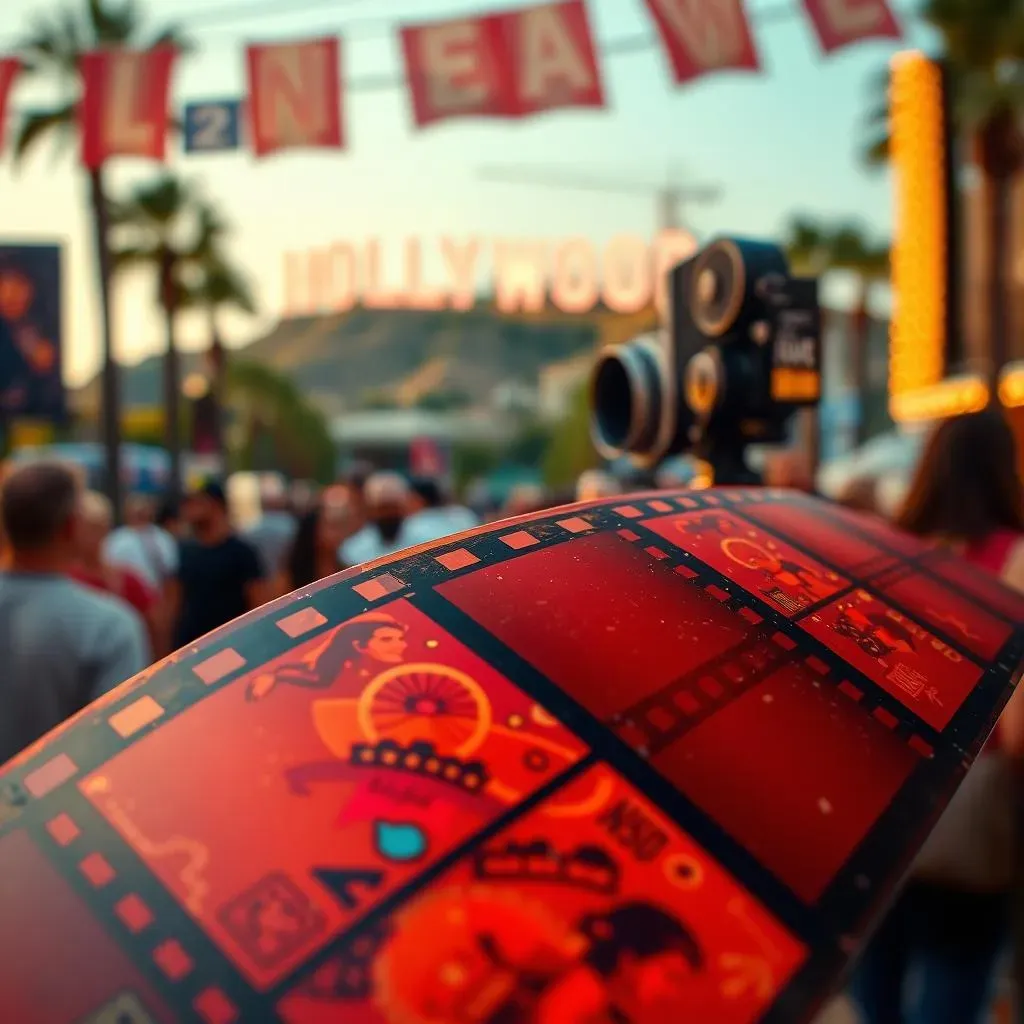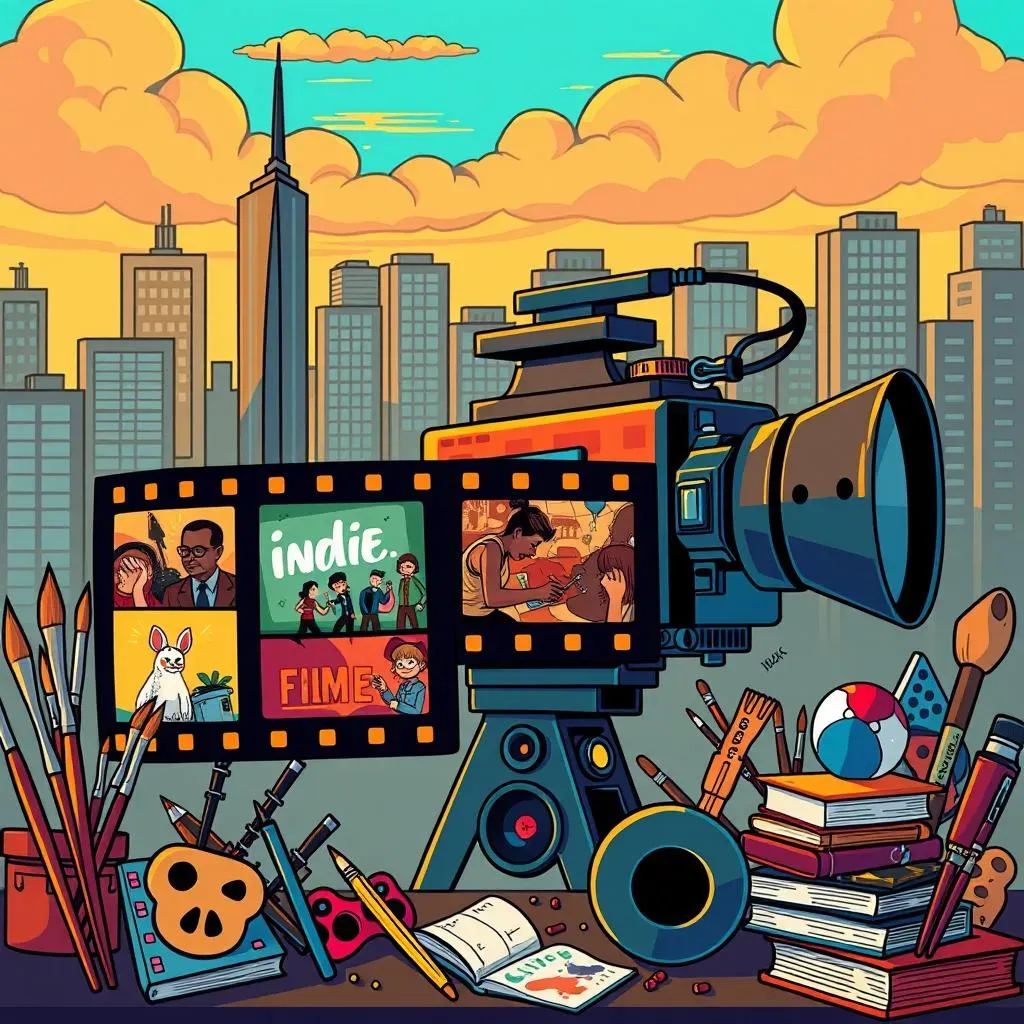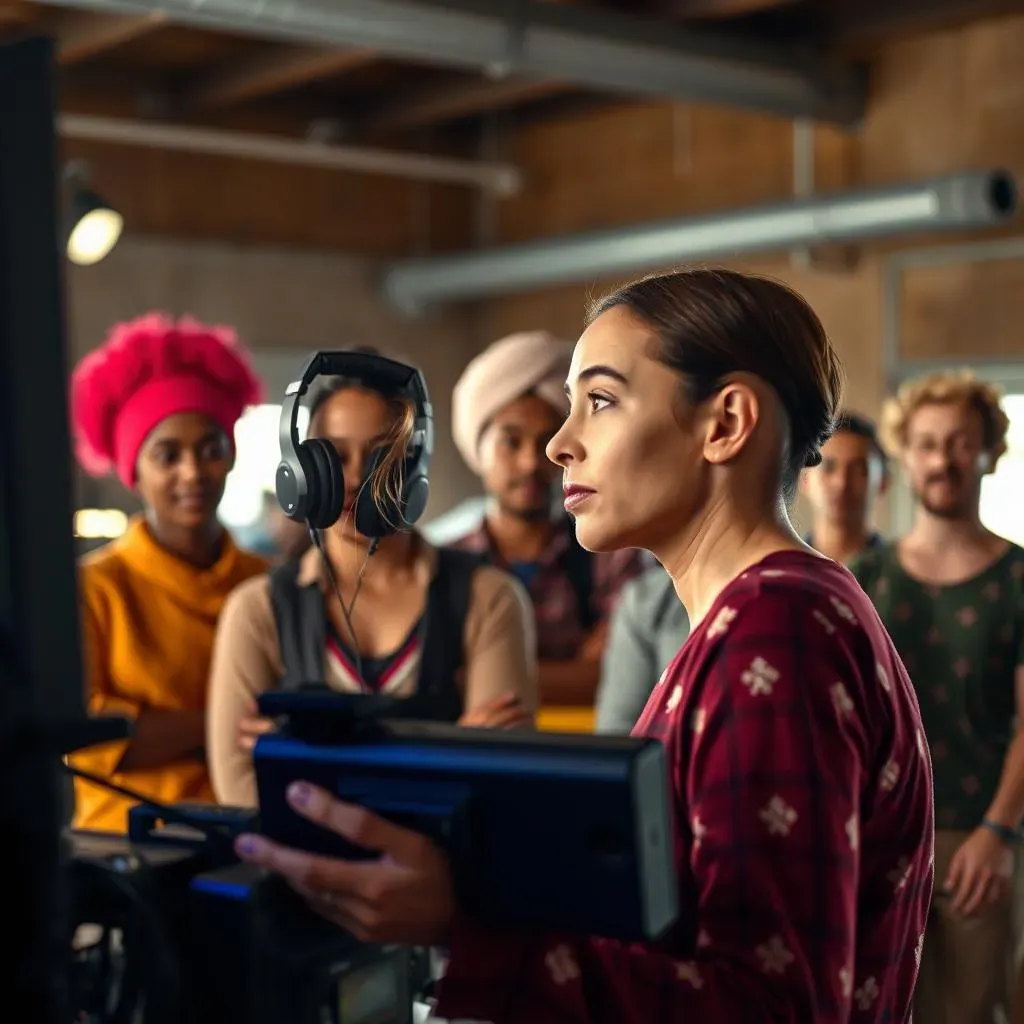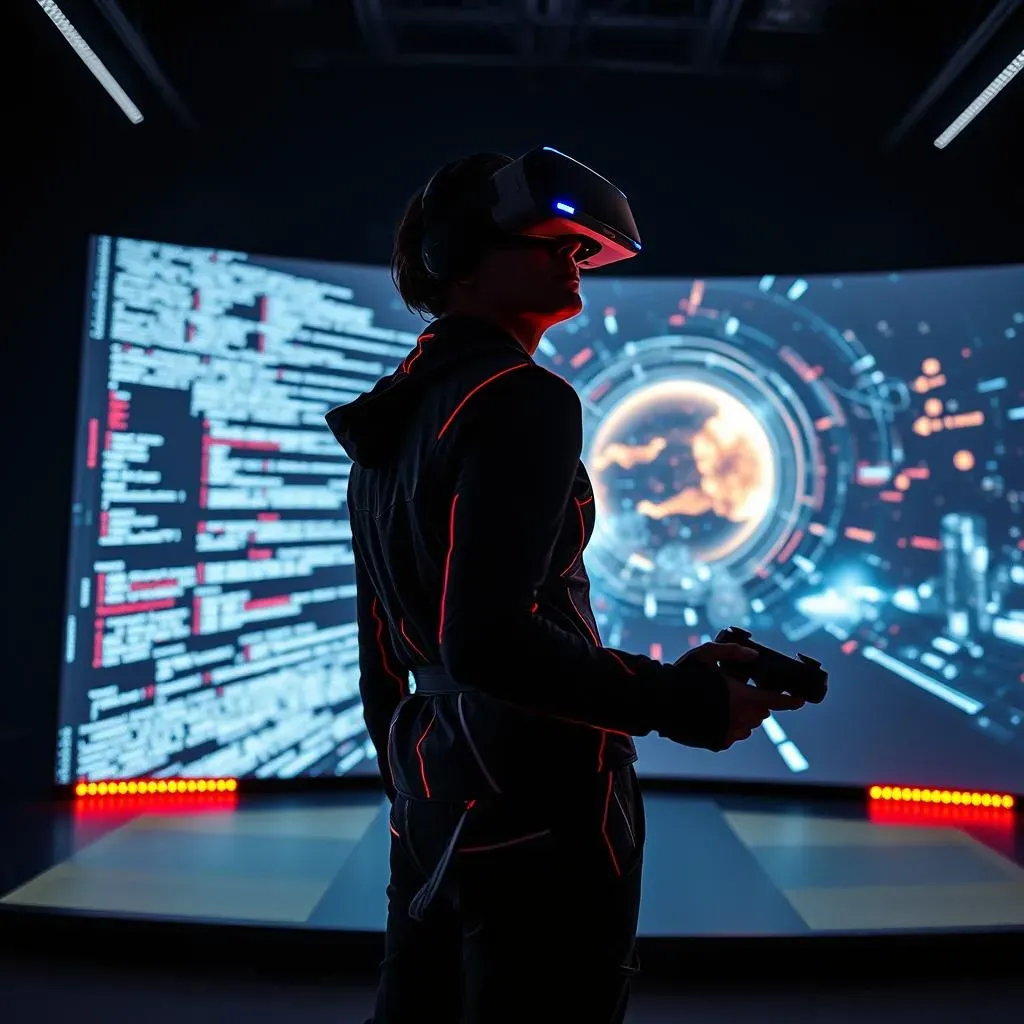Table of Contents
Get ready to discover the exciting world of emerging American directors and filmmakers! This article shines a spotlight on the innovative talent reshaping the cinematic landscape. We'll explore the rising stars making their mark in Hollywood and beyond, examining the diverse voices and unique perspectives that are enriching the industry. From independent filmmakers pushing creative boundaries to those working within the studio system, we'll uncover the stories behind their success and the innovative approaches they're bringing to the art of storytelling. Prepare to be inspired as we delve into the work of these groundbreaking individuals, uncovering the trends and themes that define their generation and predict the future of American cinema. We’ll look at how diverse representation is shaping the narratives we see on screen and the exciting possibilities that lie ahead for these emerging talents. So, buckle up and join us on a journey through the vibrant and dynamic world of emerging American directors and filmmakers – you won't want to miss it!
The New Wave: Identifying Rising Stars in American Cinema

The New Wave: Identifying Rising Stars in American Cinema
Defining the "New Wave"
So, you're diving into the world of emerging American directors and filmmakers? Fantastic! It's a thrilling landscape, constantly shifting and surprising. When we talk about a "New Wave," we're not just referring to a specific year or movement, but a feeling, a vibe. It's about filmmakers who are challenging conventions, pushing boundaries, and bringing fresh perspectives to the screen. Think of it less as a rigid definition and more as a current – a powerful flow of cinematic innovation. These aren't just your typical Hollywood fare; they're often bolder, more experimental, and deeply personal.
Many of these directors aren't just telling stories; they're building worlds. Their films often reflect the complexities of modern life, grappling with issues of identity, social justice, and the ever-changing technological landscape. This isn't just about making movies; it's about making a statement, sparking conversation, and challenging the audience to think differently. And that's what makes it so exciting!
Characteristic | Example |
|---|---|
Bold Storytelling | Unconventional narratives, defying genre expectations |
Diverse Representation | Stories from marginalized communities, challenging dominant narratives |
Technical Innovation | Experimentation with filmmaking techniques, pushing visual boundaries |
One thing that immediately stands out about this “New Wave” is the sheer diversity of voices and styles. It’s not a monolithic movement; it's a vibrant tapestry woven from countless individual threads. You'll find filmmakers who are masters of social commentary, others who create stunning visual experiences, and still others who blend genres in unexpected and delightful ways. This diversity is reflected not only in the types of films being made but also in the backgrounds and experiences of the filmmakers themselves. It's a truly exciting time to be a film enthusiast.
Think about the impact of streaming services. Platforms like Netflix, Hulu, and Amazon Prime have opened up avenues for independent filmmakers to reach wider audiences than ever before. This has led to a surge in creativity and innovation, as filmmakers are no longer constrained by the traditional studio system. This increased accessibility has also led to a more diverse range of stories being told, reflecting the multicultural landscape of the United States. Want to learn more about other rising stars? Check out our piece on new faces in Hollywood!
- Increased accessibility to distribution
- Diverse storytelling and representation
- Experimentation with film formats and styles
Beyond Hollywood: Indie Filmmakers Making Waves

Beyond Hollywood: Indie Filmmakers Making Waves
The Power of Independent Film
Let's talk indie film! It's where the real magic happens, you know? Forget the big studios and their massive budgets. Independent filmmakers are the scrappy underdogs, the creative rebels, forging their own paths and telling stories that often get overlooked by mainstream Hollywood. They're the ones pushing boundaries, experimenting with styles, and injecting fresh blood into the veins of cinema. Think of it as the wild west of filmmaking—full of risk, but also full of incredible rewards.
These filmmakers often work with shoestring budgets, relying on passion, ingenuity, and a whole lot of elbow grease. But that doesn't mean their work is any less impactful. In fact, some of the most memorable and critically acclaimed films of recent years have come from the indie world. They often tackle complex and challenging themes, offering unique perspectives that resonate deeply with audiences. They're not afraid to get weird, to get personal, to get real. Want some examples of rising stars from independent films? We've got you covered!
- Resourcefulness and creativity
- Unique storytelling approaches
- Bold and experimental filmmaking
Finding Their Voice: Unique Styles and Themes
One thing that sets indie filmmakers apart is their distinct voices. They're not constrained by studio notes or market pressures. They're free to explore their own creative visions, develop their unique styles, and tell the stories they want to tell, the way they want to tell them. This freedom often leads to some truly groundbreaking and unforgettable cinematic experiences. It's a breath of fresh air compared to the often formulaic nature of Hollywood blockbusters.
Think about the themes they explore. Indie films often tackle complex and sensitive issues that mainstream cinema shies away from. They might delve into social injustice, political turmoil, or personal struggles with a raw honesty that's both captivating and emotionally resonant. This willingness to tackle difficult subjects often leads to films that are both thought-provoking and deeply moving. And, importantly, they reflect the diverse experiences and perspectives of the people making them. Curious about emerging US celebrities from diverse backgrounds? We have a whole article dedicated to that!
Filmmaker | Style | Theme |
|---|---|---|
Example 1 | Surreal, dreamlike | Identity crisis |
Example 2 | Gritty realism | Social injustice |
Example 3 | Dark humor | Existential dread |
The Impact of Streaming and Festivals: Reaching a Wider Audience
The rise of streaming platforms has been a game-changer for independent filmmakers. It used to be that getting your film seen was a monumental task, often requiring years of hard work and countless festival submissions. Now, filmmakers can bypass the traditional distribution channels and connect directly with audiences around the world. This has democratized filmmaking in many ways, giving a voice to many who might otherwise have been unheard.
Film festivals also play a crucial role in showcasing the work of independent filmmakers. Events like Sundance, SXSW, and Tribeca provide platforms for emerging talents to gain recognition, secure distribution deals, and build their careers. These festivals are important not only for the filmmakers themselves but also for audiences who are eager to discover new and exciting voices in cinema. They’re a fantastic way to discover the next big thing before it hits the mainstream. Interested in the broader world of emerging US celebrities? We have interviews and more!
Diverse Voices: Representation and Innovation in American Film

Diverse Voices: Representation and Innovation in American Film
A New Era of Storytelling
Hey there! So you're interested in the explosion of diverse voices in American film? It's incredible, right? We're not just seeing more representation; we're seeing a complete shift in how stories are told. It's not just about ticking boxes; it's about authentic storytelling from a multitude of perspectives. Think about it – the narratives we see on screen are finally starting to reflect the rich tapestry of American society. We're seeing characters and stories that weren't previously given a platform, and that's leading to some truly groundbreaking and innovative filmmaking.
This isn't just about better representation; it’s about better storytelling, period. When you have a diverse range of filmmakers with unique experiences, you get a broader range of stories, styles, and themes. This leads to more nuanced characters, more compelling plots, and a deeper understanding of the human experience. It's a win-win for everyone involved – filmmakers, audiences, and the art of cinema itself. Want to know more about emerging LGBTQ+ celebrities? We've got an article on that too!
- Increased representation of marginalized communities
- New storytelling styles and techniques
- More nuanced and complex characters
Innovation Through Inclusion
The beauty of this shift is that it’s not just about representation; it's about the innovative storytelling that comes with it. Filmmakers from diverse backgrounds bring unique perspectives and experiences to their work, leading to fresh and exciting approaches to filmmaking. They’re not just telling stories; they're challenging conventions, pushing boundaries, and reinventing the way we think about cinema. It's a thrilling time to be a film lover!
Think about the impact on the industry as a whole. This isn't simply about adding more diverse characters to existing narratives; it's about creating entirely new narratives that were previously unheard. This leads to fresh perspectives, new cinematic styles, and a richer, more inclusive cinematic landscape. It's a revolution, and it's incredibly exciting to witness. Check out our article on emerging US celebrities in environmental activism for another perspective on innovative storytelling.
Director | Innovation | Impact |
|---|---|---|
Example 1 | Unique visual style | Redefines genre conventions |
Example 2 | Experimental storytelling | Challenges traditional narratives |
Example 3 | Focus on underrepresented voices | Expands cinematic representation |
The Future of Film: Predicting the Next Generation of Directors

The Future of Film: Predicting the Next Generation of Directors
Technological Transformations
Predicting the future of film is like trying to catch smoke, but some trends are pretty clear. Technology is going to play a huge role. We're already seeing the rise of virtual production, AI-driven tools, and immersive experiences like VR and AR. These technologies will likely become even more sophisticated, blurring the lines between traditional filmmaking and other forms of media. Imagine films where the audience actively participates in shaping the narrative, or where the boundaries of the screen itself become almost limitless. It's a wild ride!
Think about the impact of AI on filmmaking. It's not just about special effects anymore. We're seeing AI used for everything from scriptwriting and editing to creating entirely new visual styles. While there's understandable concern about the potential displacement of human artists, it's also a chance for collaboration and innovation. The next generation of directors will likely be fluent in these technologies, using them to enhance their storytelling rather than being replaced by them. Want to know more about rising stars in other creative fields? Check out our article on breakthrough US artists in 2023.
- Virtual Production
- AI-driven tools
- Immersive experiences (VR/AR)
Evolving Storytelling
Beyond technology, the stories themselves will continue to evolve. We're already seeing a move away from traditional narrative structures, with more filmmakers experimenting with non-linear storytelling, interactive experiences, and even transmedia narratives that span multiple platforms. The next generation of directors will likely push these boundaries even further, finding new and innovative ways to engage audiences and tell stories that resonate with the complexities of modern life.
Consider the increasing demand for diverse and inclusive narratives. Audiences are craving stories that reflect their own experiences and perspectives, and filmmakers are responding in kind. We'll likely see even more authentic and nuanced portrayals of marginalized communities, leading to a richer and more diverse cinematic landscape. This isn't just about representation; it's about creating more engaging and relatable stories for a wider audience. To learn more about emerging talent in various fields, check out our interviews with emerging US celebrities.
Storytelling Trend | Example |
|---|---|
Non-linear narratives | Films that jump between timelines or perspectives |
Interactive experiences | Films where the audience makes choices that affect the story |
Transmedia narratives | Stories told across multiple platforms (film, games, etc.) |
The Human Element
Despite all the technological advancements, the human element will always remain at the heart of filmmaking. The next generation of directors will need to be not only technically skilled but also deeply empathetic and insightful storytellers. They'll need to understand their audiences, connect with them on an emotional level, and create films that leave a lasting impact. It’s not just about the pixels on the screen; it's about the human connection.
Ultimately, the future of film rests on the shoulders of these emerging directors. Their creativity, vision, and ability to adapt to a rapidly changing technological and cultural landscape will shape the future of cinema. It's a thrilling prospect, and I, for one, can't wait to see what they create. For more insights into the future of entertainment, you might also enjoy our piece on rising US celebrities in podcasting – another rapidly evolving medium.